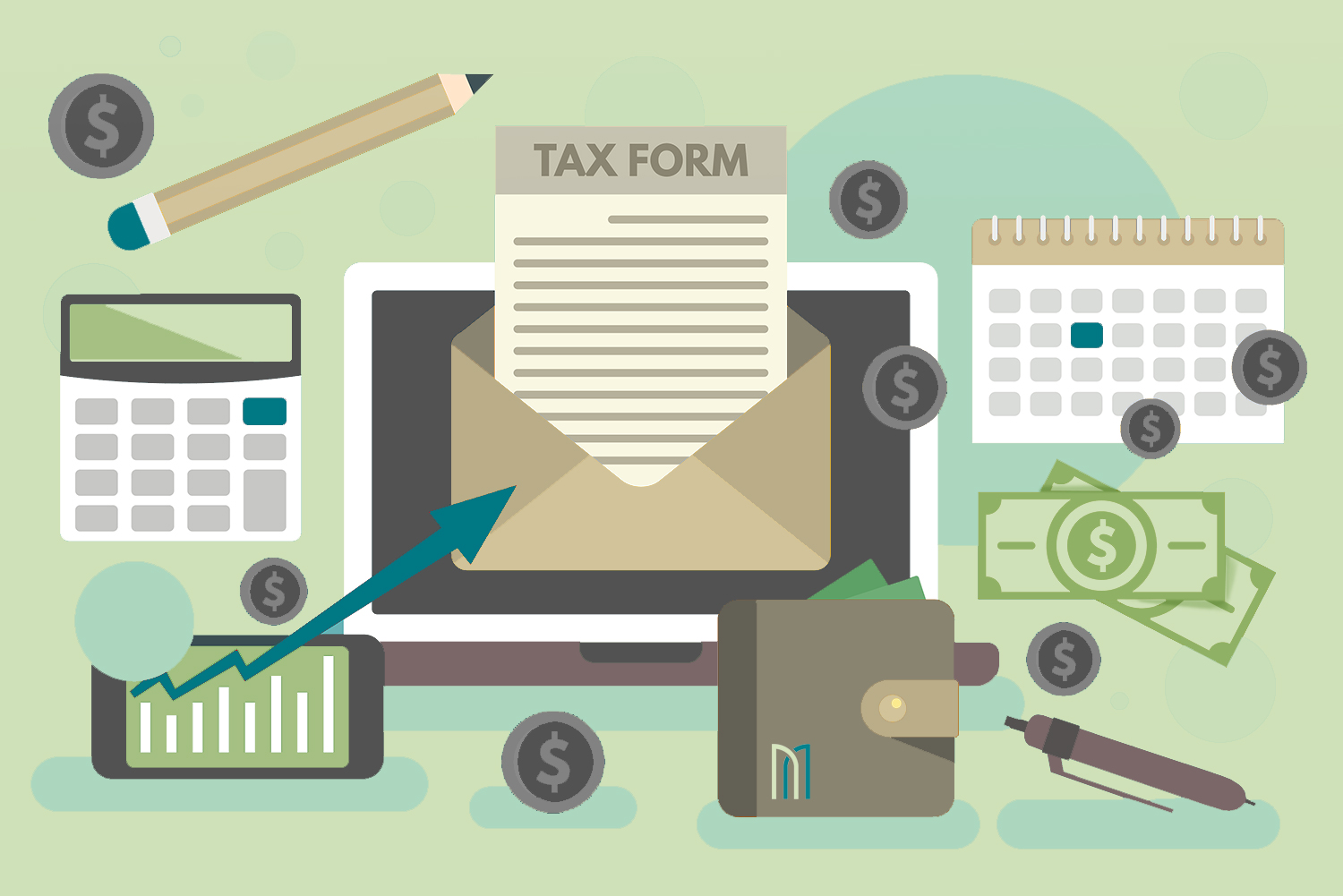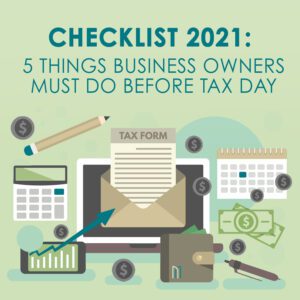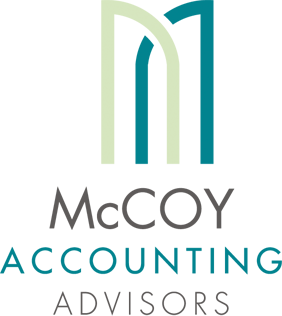Checklist 2021: 5 things business owners must do before Tax Day
The countdown is on until Tax Day. That means it’s time to pull together the information you’ll need to make filing your business taxes less taxing. To help you get organized and avoid last-minute stress, follow this checklist of important to-dos.
1. Compile your financial records.
Filing your business tax return means bringing together financial information from a range of sources. Make sure you’ve got the following at your fingertips:
- Last year’s tax return, plus the record of your estimated tax payments made throughout 2020
- This year’s balance sheet and income statements
- Bank and credit card statements
2. Review and update your expense tracker.
Hopefully, you have a system for tracking your business expenses as you go, such as logging receipts in your business accounting software and paying for everything through a dedicated business account or credit card. That definitely makes assembling a full-year view of your expenses easier.
But no matter your system, there are likely to be a few expenses that you handled differently for one reason or another. Now’s the time to track down any missing receipts, so you don’t forget to include an expense and miss out on a potential deduction.
3. Check your expense categories.
Once you have your expenses pulled together, make sure each is categorized correctly in order to maximize your deductions. Key expense categories to track include:
- Location expenses (office mortgage, monthly lease, or dedicated home office space)
- Employee wages and benefits (for both your employees and contract workers)
- Equipment and furniture (also known as capital assets), including depreciation
- Utilities, phone, and Internet
- Vehicles and driving expenses (also see #4 below)
- Travel and meals (keep those receipts!)
- Business insurance
- Professional services (like accounting or legal)
- Service and maintenance (such as lawn mowing or janitorial services)
- Advertising (promotional expenses like designing a logo, printing business cards, or hiring an agency to run your company’s social media)
- Office supplies
4. Update your mileage log.
Ideally, you record the mileage as you drive your personal vehicle to business-related appointments throughout the year. Review and update your mileage log now. It’s important to document exactly how much you use your car for business purposes.
For most business owners, the standard mileage rate is the preferred option. For every mile driven for business in 2020, you can claim $0.575, which factors in costs for gas, maintenance, and repairs. As an alternative to the standard mileage deduction, you may elect to base your deduction on actual total expenses by tracking all auto expenses, such as fuel, oil changes, tires, tolls, insurance, and repairs. Based on the mileage driven for business, you can deduct a portion of your total auto expenses. For example, if 50 percent of your 2020 mileage was related to business, you can generally expect to take 50 percent of the expenses as a deduction.
5. Determine your deductions.
Keeping up with the latest tax regulations is a full-time job. Rely on your tax advisor to help you optimize the available tax deductions for your business. Along with the information regarding the expenses outlined above, consider the following deductions as you prepare to meet with your advisor:
- Home-based business: If your principal office is in your home, you’re eligible for a home office deduction. There are two options – a simplified method that allows a deduction of $5 per square foot of home office space, up to a max of $1,500, or a standard method based on actual expenses incurred and a calculation to determine the percentage of your home that’s used for business. The key is it must be dedicated office space to qualify – not your dining room table!
- Business loans: If you have borrowed money to fund your business, you can deduct the interest charged by the bank or business credit cards – as well as any service fees.
- Charitable contributions: If your business is set up as a sole proprietorship, partnership, or LLC, you should deduct qualifying charitable donations on your personal tax forms. However, if your company is a corporation, you can claim charitable contributions on your corporate tax return.
There’s a lot to think about as you prepare for Tax Day. McCoy Accounting Advisors is here to help make the process less stressful. Plus, our business advisory, bookkeeping, HR, and payroll services provide year-round support to keep your business and taxes on track. Contact us today to schedule a complimentary consultation.


